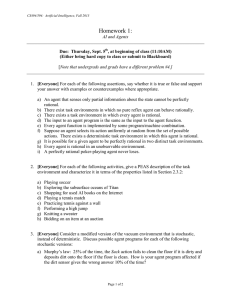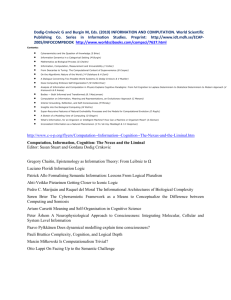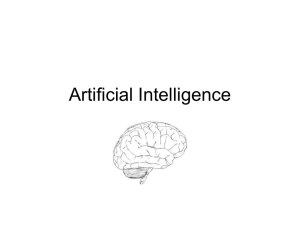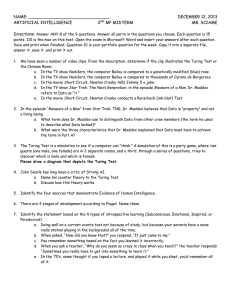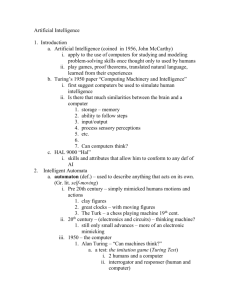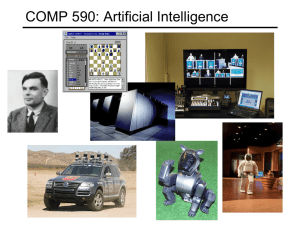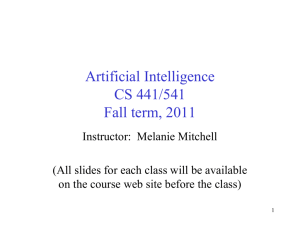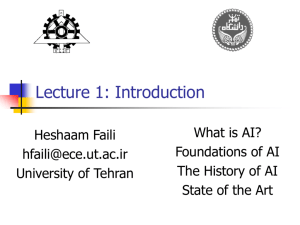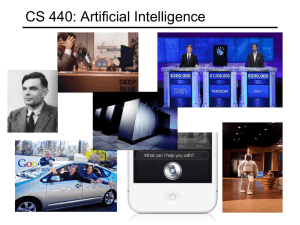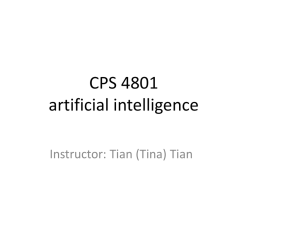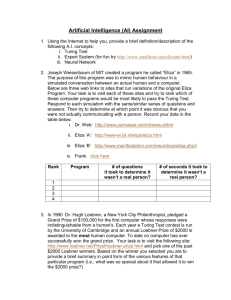S. Russel and P. Norvig. Artificial Intelligence: a Modern Approach
advertisement
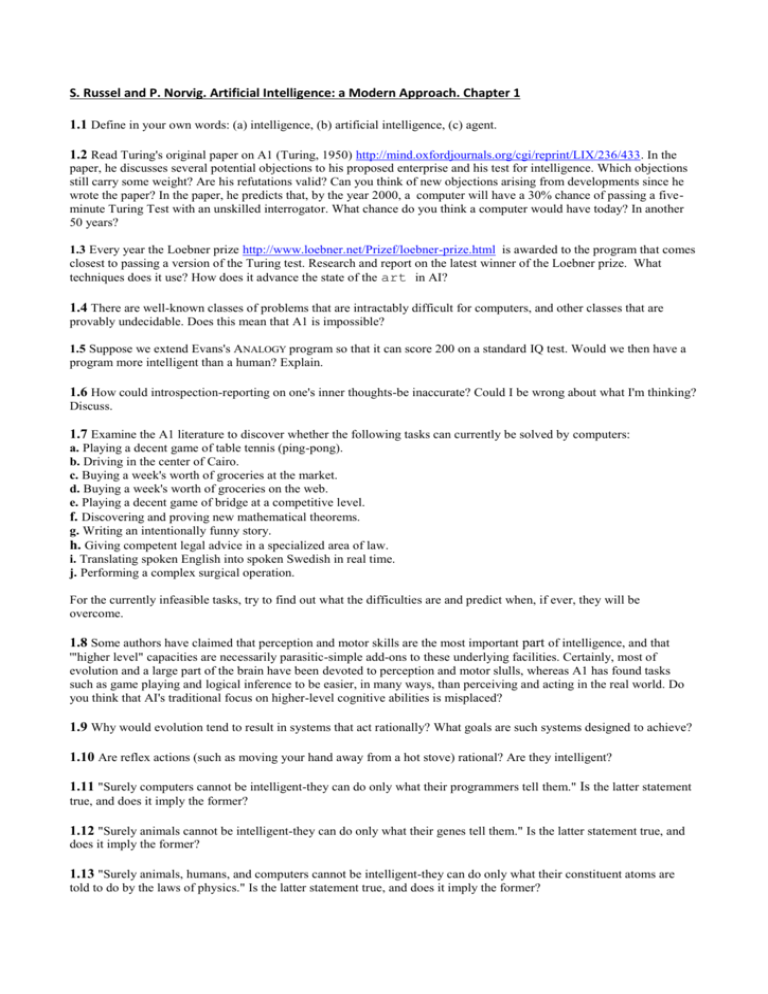
S. Russel and P. Norvig. Artificial Intelligence: a Modern Approach. Chapter 1 1.1 Define in your own words: (a) intelligence, (b) artificial intelligence, (c) agent. 1.2 Read Turing's original paper on A1 (Turing, 1950) http://mind.oxfordjournals.org/cgi/reprint/LIX/236/433. In the paper, he discusses several potential objections to his proposed enterprise and his test for intelligence. Which objections still carry some weight? Are his refutations valid? Can you think of new objections arising from developments since he wrote the paper? In the paper, he predicts that, by the year 2000, a computer will have a 30% chance of passing a fiveminute Turing Test with an unskilled interrogator. What chance do you think a computer would have today? In another 50 years? 1.3 Every year the Loebner prize http://www.loebner.net/Prizef/loebner-prize.html is awarded to the program that comes closest to passing a version of the Turing test. Research and report on the latest winner of the Loebner prize. What techniques does it use? How does it advance the state of the art in AI? 1.4 There are well-known classes of problems that are intractably difficult for computers, and other classes that are provably undecidable. Does this mean that A1 is impossible? 1.5 Suppose we extend Evans's ANALOGY program so that it can score 200 on a standard IQ test. Would we then have a program more intelligent than a human? Explain. 1.6 How could introspection-reporting on one's inner thoughts-be inaccurate? Could I be wrong about what I'm thinking? Discuss. 1.7 Examine the A1 literature to discover whether the following tasks can currently be solved by computers: a. Playing a decent game of table tennis (ping-pong). b. Driving in the center of Cairo. c. Buying a week's worth of groceries at the market. d. Buying a week's worth of groceries on the web. e. Playing a decent game of bridge at a competitive level. f. Discovering and proving new mathematical theorems. g. Writing an intentionally funny story. h. Giving competent legal advice in a specialized area of law. i. Translating spoken English into spoken Swedish in real time. j. Performing a complex surgical operation. For the currently infeasible tasks, try to find out what the difficulties are and predict when, if ever, they will be overcome. 1.8 Some authors have claimed that perception and motor skills are the most important part of intelligence, and that '"higher level" capacities are necessarily parasitic-simple add-ons to these underlying facilities. Certainly, most of evolution and a large part of the brain have been devoted to perception and motor slulls, whereas A1 has found tasks such as game playing and logical inference to be easier, in many ways, than perceiving and acting in the real world. Do you think that AI's traditional focus on higher-level cognitive abilities is misplaced? 1.9 Why would evolution tend to result in systems that act rationally? What goals are such systems designed to achieve? 1.10 Are reflex actions (such as moving your hand away from a hot stove) rational? Are they intelligent? 1.11 "Surely computers cannot be intelligent-they can do only what their programmers tell them." Is the latter statement true, and does it imply the former? 1.12 "Surely animals cannot be intelligent-they can do only what their genes tell them." Is the latter statement true, and does it imply the former? 1.13 "Surely animals, humans, and computers cannot be intelligent-they can do only what their constituent atoms are told to do by the laws of physics." Is the latter statement true, and does it imply the former?
